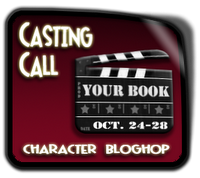A man walks up to a woman in a bar. He introduces himself and asks, “If I paid you a million dollars, would you go to bed with me?”
The woman considers the question, and then says, “Yes.”
The man then asks, “Well, if I paid you five dollars, would you go to bed with me?”
The woman looks outraged. “Of course not. What kind of girl do you think I am?”
The man says, “We’ve established that. Now we’re just haggling over the price.”
On Friday, Rachelle Gardner (if this keeps up, I’m going to have to start calling her my muse) posed this question: What if there were no money in writing? Would you still write? Like most of Rachelle’s posts, it generated a lot of comments, quickly: 179 as I sit down to polish this up now. The overwhelming run of comments went one of two ways:
1. There’s money in writing? Lol
2. I don’t write for the money. I’d still write.
Reading the post, and those responses, the next logical question occurred to me: If a publisher told you that they would devote their top team to your book – the best editor and proofreaders, the top typesetters and layout designers, their number 1 cover artist, and the best of their marketing department; if they told you they would spare no expense in getting your book into book of the month clubs, and on ‘Off the Page’; if they could do all that, but told you they wouldn’t pay you a single dime for it, that the book was either going to be given away for free, or they were going to keep all the money from sales—would you do it? Would you give it away?
Keep in mind, there are no guarantees. Your book might flop. Or, it could be critically acclaimed, a mega-bestseller that moves a generation and becomes a beloved classic, read for generations to come. It could be just another throwaway read, the sort of thing that ends up in library book sales for $1, quickly read and enjoyed, but just as quickly forgotten. It could launch you on a career path like Stephen King’s, or it could go absolutely nowhere. You could end up toiling in anonymity for the rest of your days.
Would you do it?
As a businessman, I know there are times when it's a smart decision to take a loss on something in order to build reputation and goodwill. But setting out an entire book (at this point, almost a year's worth of labor) for free is not the same thing as tossing a few hundred bucks at a community event, or giving away a few dozen widgets at cost. My inclination is to say no. But pondering it in the theoretical world is a lot different than having the question posed in the real world, so I would have to think about it, very carefully.
What about you?




